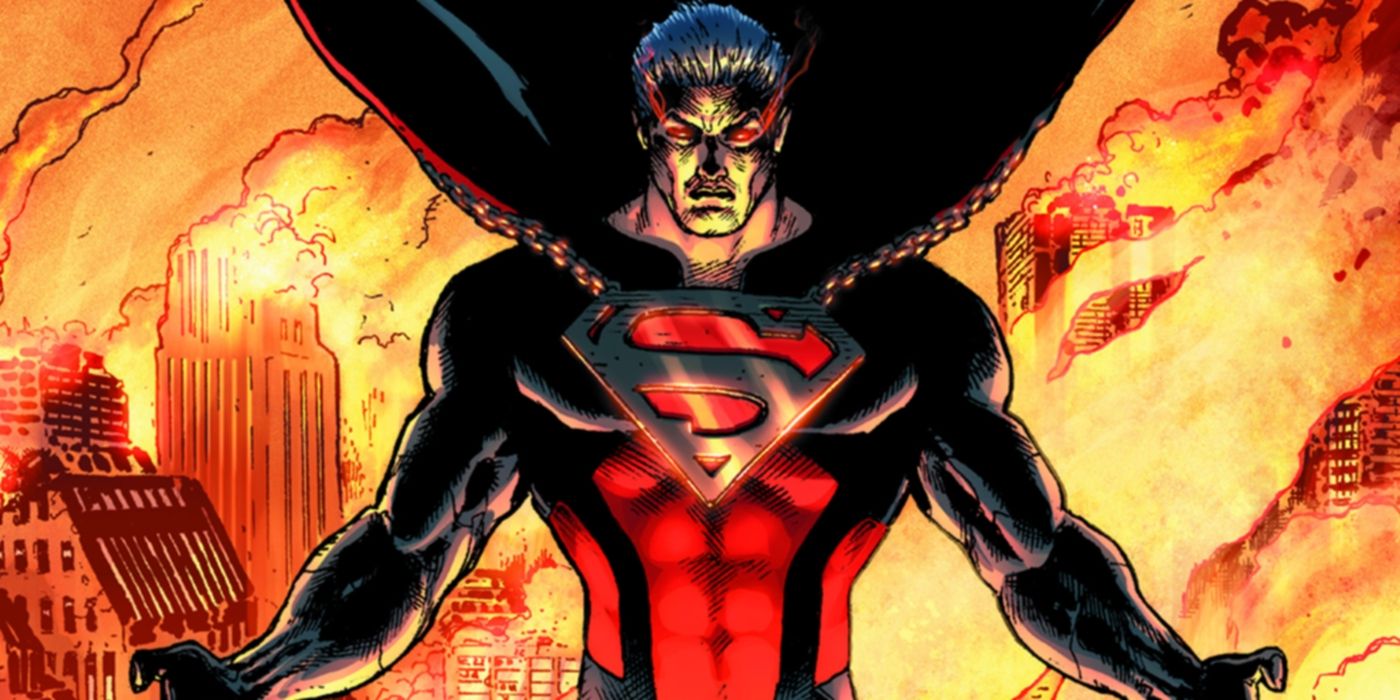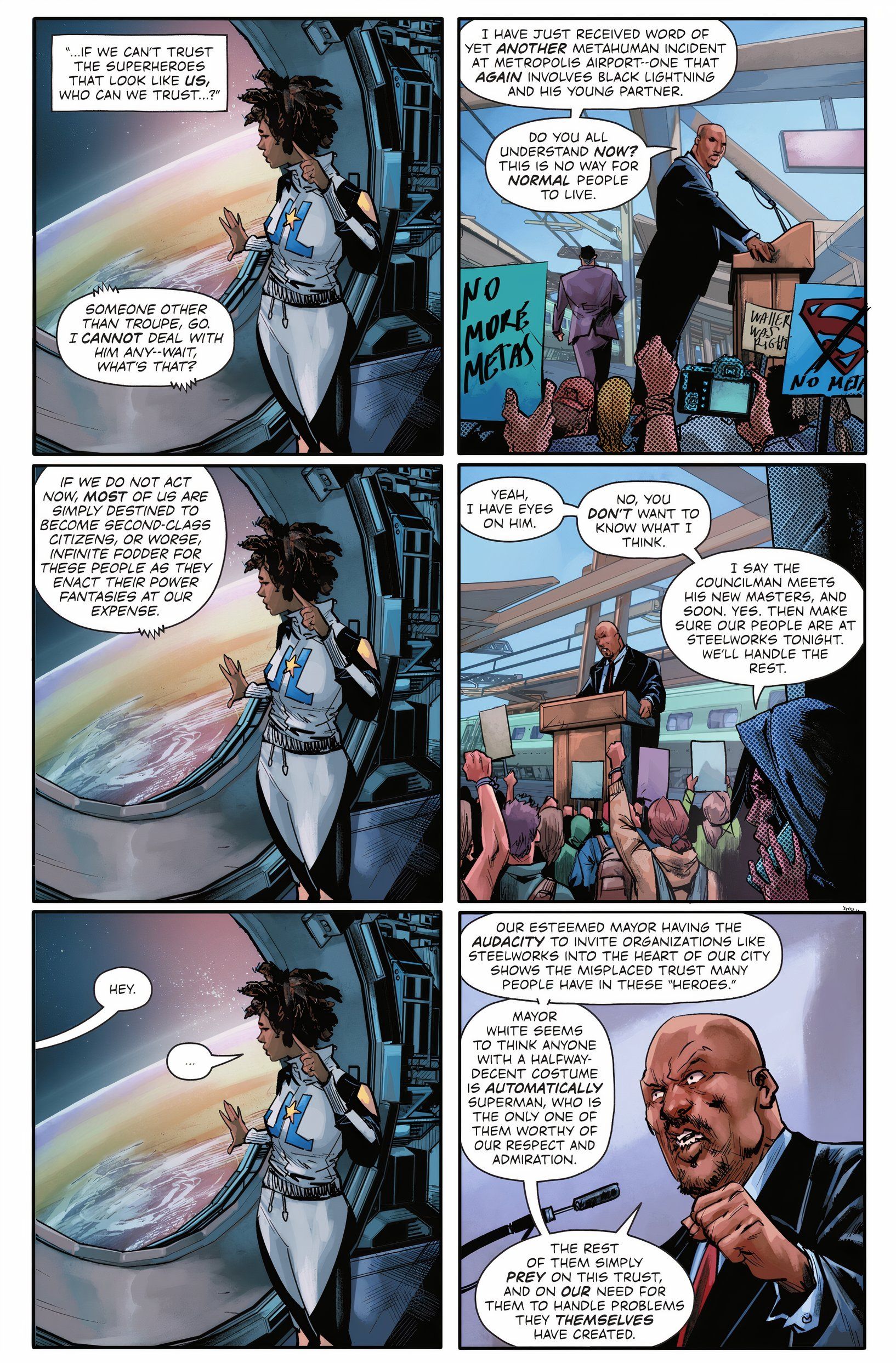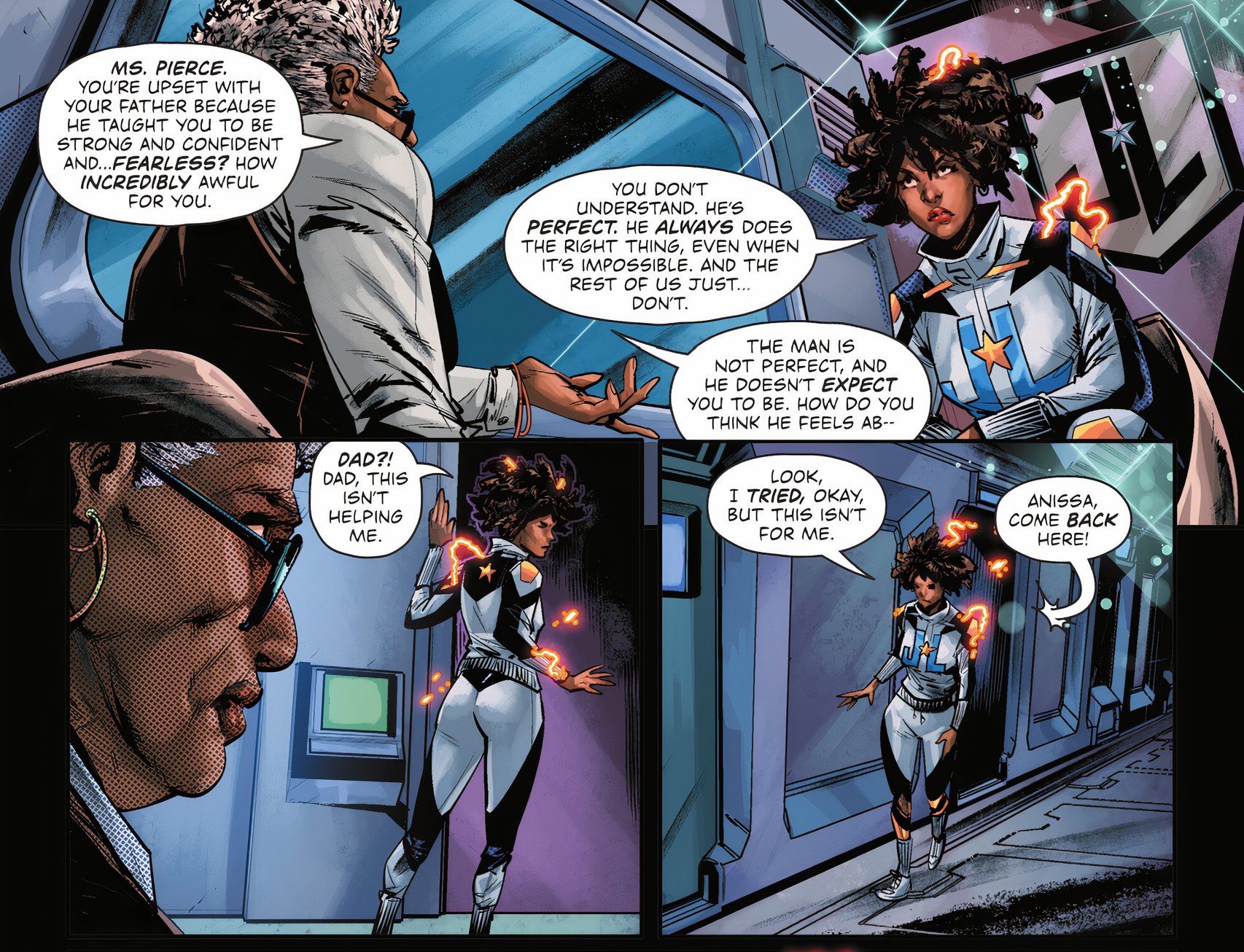
Warning: Spoilers for Black Lightning (2024) #2 ahead!There is no doubt that SupermanDC's "Big Blue Boy Scout" is the heart and soul of DC Universe: a hero whose tireless strength is matched only by his seemingly limitless compassion. However, this could have a deleterious effect on those who have to put up with it day in and day out, as a surprising argument has formed around how healthy Superman really is for the DC Universe.
Black Lightning (2024) #2 – written by Brandon Thomas, with art by Fico Ossio – initially finds Anissa Pierce, aka Thunder, in therapy, assessing the consequences of DC Absolute power event. She laments how her father, Black Bolt, always seems to make perfect choices. Later, local politician Councilman Harriman criticizes all metahumans except, explicitly, Superman.
Both scenes make a compelling case for the moral high ground set by Superman and Black Lightning. can have the side effect of demoralizing "inferior" heroes, making it difficult for audiences to trust other metahumans.
DC is finally tackling a question readers have been asking for years: Is Superman too perfect?
Black Lightning (2024) #2 – Written by Brandon Thomas; Art by Fico Ossio; Color by Ulises Arreola; Lettiner, by Lucas Gattoni
Resistance against Superman's seemingly infinite kindness is nothing new. Perhaps the most notable example is Zack Snyder's 2013 film, Man of Steelfamous for positing a Superman with a much more volatile disposition, sparking controversy when Superman executes his enemy, General Zod, in the film's climax. This philosophy that heroes are “no better than the rest of us” would heavily influence the formation of Zack Snyder's DCU filmography as a whole. Although this vision is possibly overly bleak, recognizes the difficulty of relating to heroes who are frustratingly and unfailingly perfect.
Furthermore, Anissa and Harriman's frustration with Superman and Black Lightning has roots in real psychological studies. The psychology of comparison shows that people often judge themselves by what they consider to be the standards set by others. When these standards are too high, it can lead to the demotivating impression that it is impossible to match them and that even trying to do so is futile. Harriman's complaint expresses the opposite extreme of this comparison, where the standard set by Superman's conduct is so high that the Councilman refuses to accept anything less than perfection as permitted by other heroes.
By setting the bar impossibly high, Superman makes it harder to be a hero for the rest of the DC universe
The dangers of trying to follow the example of the Man of Steel
While it is better to have heroes with strong ethical fiber than not, it is important to recognize that constant comparison to such high standards brings with it real psychological disadvantages. It's difficult to accept that being able to give a kind word or a hug has equal merit in a world where there are people who can, single-handedly, save entire planets. When such high standards set the standard for the superhero community, the backlash can drive good heroes like Anissa into the apathy or discontent that allows tyrants like Amanda Waller to rise to power.
Superman may be an unequivocal force for good in the DC Universe, but readers cannot pretend that such a force is without consequences.
It may seem silly to argue against DC's greatest role models in a world where there are definite and absolute evils for them to face, but Black Lightning #2 recognizes that even the brightest light creates shadows. Harriman may be arguing in bad faith, but his actions still have consequences for the entire world; Likewise, Anissa's reluctance to act in the face of her father's perceived perfection robs the world of another powerful hero. Superman can be an unequivocal force for good in DC Universe, but readers cannot pretend that such force is without consequence.
Black Lightning (2024) #2 is now available from DC Comics.

